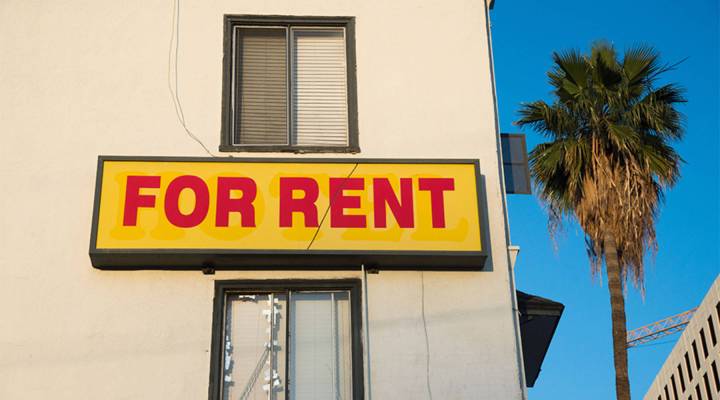
LA homeless advocates have a new tech tool for affordable housing
LA homeless advocates have a new tech tool for affordable housing

If you need a ride somewhere, Uber or Lyft will match you up with a car and a driver, and off you go. If you’re a landlord renting a house, you post it on Zillow and renters can find you. Tech has made it really easy for most of us to get matched up with what we need with just a few clicks.
But, like so much technology, these advances are not evenly distributed.
Nonprofit housing agencies work to help homeless and low-income people find a place to live. A lot of the time, the agencies have funding to help pay for the housing. But right now, a case worker looking for a house for someone still has to do a lot of analog work.
“A lot of phone calls,” said Shari Weaver, who directs homeless outreach at Harbor Interfaith Services in Los Angeles. “A lot of even just driving around in general communities and looking what’s for rent. It’s a lot of beating the pavement.”
She said the time spent searching for housing is time that case workers don’t get to spend helping their clients in other ways, like with medical care or other services.
“I’ve been working in homeless services for the past 17 years,” Weaver said. “And I can remember, back in my days of case management, always kind of wishing and hoping that there was just this one place that I could go to in my search to find this listing of housing units. And that’s, you know, even more so in this day and age with the really low vacancy rate.”
In Los Angeles, there’s a new tech tool to help. LeaseUp is a website that makes it easier for landlords to list affordable housing units and for nonprofits to find those homes.
Jennifer Hark-Dietz is executive director of the large housing nonprofit People Assisting the Homeless (PATH), the agency that created LeaseUp. It works like Zillow or Craigslist, online or on a mobile phone, and case workers can shop for housing with their clients.
“They can see pictures of the units,” Hark-Dietz said. “They can see all of the specifics, like number of bedrooms, whether it’s first floor, second floor. And that can really streamline the process. Then, on the back-end, they can request to see the unit through one of our staff who’s going to contact the landlord directly.”
Hark-Dietz said that last part is huge. There’s such a shortage of low-income housing that, right now, landlords get flooded with calls on a single unit from lots of different agencies or individuals. LeaseUp is designed to make sure they just talk to one person, like an affordable housing broker.
There are currently about 600 landlords on the LeaseUp platform. Hark-Dietz wants to get 2,000 units on LeaseUp in the next year. Most important, she said, is getting people into homes faster.
“The longer that an individual is out on the street, the more that it taxes our emergency departments, our first responders,” Hark-Dietz said. “And, personally, the more that it taxes the individual or family. They’re in survival mode and trying to do the best they can on a day-to-day basis. So the faster that we can get them into a permanent home, the better for the entire community.”
LeaseUp is funded by a sales tax increase passed in Los Angeles County in 2016 that set aside money to help the homeless. But Hark-Dietz said the model of a simple platform for connecting agencies to landlords is expanding to Santa Barbara and should be a model for the rest of California and even the country.
Related links: more insight from Molly Wood
Marketplace recently aired an interview with a New York Times reporter on the history of tech companies trying to solve the housing crisis. Spoiler alert! It hasn’t gone that well. The Upshot’s Emily Badger talked to Amy Scott about how, even though there are billions of dollars invested in making it easier to find a home, it hasn’t made housing any cheaper.
But that story doesn’t mean tech won’t keep trying, especially since the industry gets a lot of the blame for the high salaries and big stock option payouts that cause housing prices to pop out of reach for many people. So now you’re seeing venture capital funds and accelerators looking to invest in companies that somehow address affordable housing issues. There’s one called MetaProp in New York City. In fact, there’s a wave of investment in real estate-related technology overall because, let’s be honest, there’s also money to be made, whether it’s in residential or co-working or construction.
Of course, it wouldn’t be a tech investment trend without a fun little name for it. First there was fintech, then insurtech and now there’s proptech.
There’s a lot happening in the world. Through it all, Marketplace is here for you.
You rely on Marketplace to break down the world’s events and tell you how it affects you in a fact-based, approachable way. We rely on your financial support to keep making that possible.
Your donation today powers the independent journalism that you rely on. For just $5/month, you can help sustain Marketplace so we can keep reporting on the things that matter to you.


















